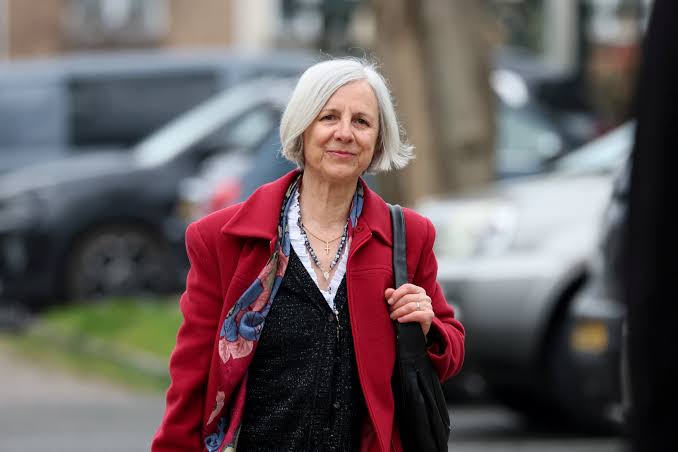US accused of meddling in UK over anti-abortion free speech rights

By M A Hossain
In an unusual and provocative turn of transatlantic diplomacy, US State Department officials recently traveled to the United Kingdom to meet with local anti-abortion campaigners who, according to Washington, are facing infringements on their freedom of expression. The trip, which included engagements with British government regulators and activists arrested under controversial legislation, has been interpreted by some UK commentators as a breach of protocol and a direct interference in British domestic affairs.
The report, first published by The Telegraph on May 24, paints a picture of quiet but deliberate American engagement in a sensitive and polarizing British debate, the rights of anti-abortion activists versus the scope of public order legislation. The delegation from the State Department’s Bureau of Democracy, Human Rights, and Labor (DRL) met not only with Foreign Office officials and the UK’s media watchdog Ofcom, but also privately convened with British activists who had faced arrest or prosecution for protesting outside abortion clinics.
At the heart of Washington’s concern is Britain’s new Online Safety Act, legislation that has sparked significant debate over its implications for freedom of expression. Although the Act primarily focuses on curbing harmful content on the internet, critics argue it sets a dangerous precedent by broadening the state’s ability to monitor and restrict speech.
But the US delegation’s attention extended beyond the digital realm. In what appears to be a broader critique of the UK’s approach to civil liberties, officials attended an event held in a “nondescript” London office block, meeting British citizens prosecuted for peaceful demonstrations near abortion facilities.
One such case is that of Livia Tossici-Bolt, a 64-year-old campaigner who in 2023 was charged under a Public Spaces Protection Order (PSPO) for standing outside a clinic in Bournemouth with a sign that read: “Here to talk if you want.” Tossici-Bolt refused to leave the area when asked by police, triggering legal proceedings. While the British authorities defend the buffer zones around abortion facilities as necessary protections for women seeking medical services, free speech advocates – both in the UK and abroad – see them as overreach.
Another prominent case is Adam Smith-Connor, a British army veteran convicted in October 2024 for silently praying within the restricted zone of the same clinic. His case received significant international attention when US Vice President J.D. Vance labeled it “a most concerning case,” stating it highlighted the growing threats to “basic liberties of religious Britons.”
These interventions mark a notable shift in the US approach to foreign human rights advocacy – from defending democratic rights in authoritarian regimes to openly challenging restrictions in long-standing allies such as the UK.
The meetings took place as UK and US officials were also engaged in trade negotiations, raising questions about whether diplomatic leverage was being subtly applied. While the State Department has publicly framed the visit as part of its global human rights mission, British commentators, particularly from conservative media, have accused the US of diplomatic overreach.
“The visit is the latest sign of the Trump administration’s willingness to intervene in domestic British affairs,” The Telegraph noted, despite President Trump not currently holding office. However, his administration’s legacy – including placing a high priority on religious freedom and political expression – appears to still shape Republican policymaking, especially under the vice presidency of J.D. Vance, who has taken up the mantle on human rights advocacy abroad.
While the Biden administration had focused much of its international human rights dialogue on racial equity, gender rights, and climate justice, the current Republican leadership, particularly since Trump’s resurgence in American politics, has taken a sharp turn toward defending traditional values and religious liberties – even across borders.
The situation has also reignited debates in the UK over what critics describe as “two-tier policing.” The term refers to the alleged disparity in how police treat right-wing versus left-wing protesters. While climate activists and pro-Palestinian demonstrators often face leniency, anti-immigration or socially conservative campaigners are said to receive disproportionately heavy-handed treatment.
Tech magnate Elon Musk, an outspoken critic of liberal censorship and a staunch ally of Donald Trump, recently weighed in on the UK’s protest laws. He accused British authorities of exhibiting bias in their policing strategies, arguing that peaceful demonstrators with unfashionable opinions were being unjustly silenced.
This view is echoed by several British politicians and advocacy groups who fear the erosion of core democratic principles. “Free speech is meaningless if it only protects speech that the majority agrees with,” said Claire Fox, a former member of the House of Lords and director of the Academy of Ideas. “We’re drifting into dangerous territory when people are arrested for praying or offering a conversation in public space.”
While the US has long seen itself as a guardian of liberal democracy, this latest episode illustrates how definitions of “freedom” and “rights” are beginning to diverge between allies. In continental Europe, and increasingly in the UK, maintaining social harmony and protecting minority groups is often prioritized over absolute freedom of expression. The US, especially under Republican leadership, views any curtailment of speech – even if offensive – as a threat to democracy.
That transatlantic divergence is now playing out in real time, with implications for bilateral relations. Britain’s Foreign Office has so far remained tight-lipped about the meetings, likely aiming to avoid a diplomatic spat. But the implications are serious. As the US increasingly frames free speech as a global issue – regardless of jurisdiction – traditional allies may find themselves subject to uncomfortable scrutiny.
The US visit to the UK to meet with anti-abortion campaigners underscores a broader shift in American foreign policy priorities and raises thorny questions about sovereignty, civil liberties, and diplomatic norms. While Washington’s defenders argue that advocacy for human rights knows no borders, critics counter that such actions veer dangerously close to interference.
At a time when both nations face rising polarization at home and instability abroad, their handling of fundamental freedoms – and their willingness to critique each other – may prove a litmus test for the future of the “special relationship.”




